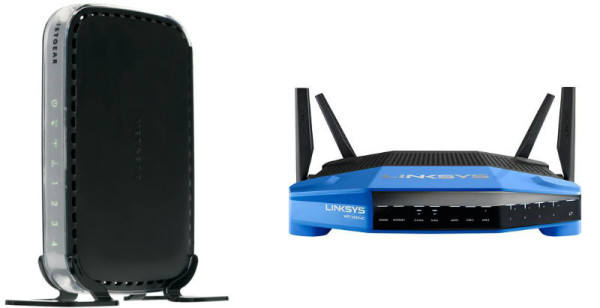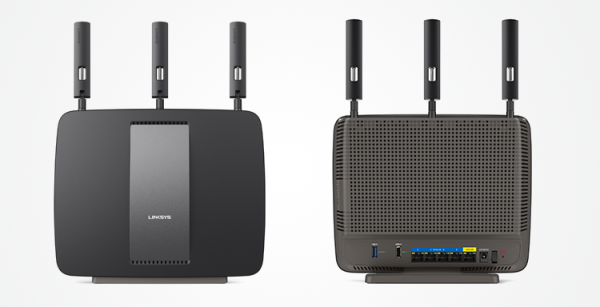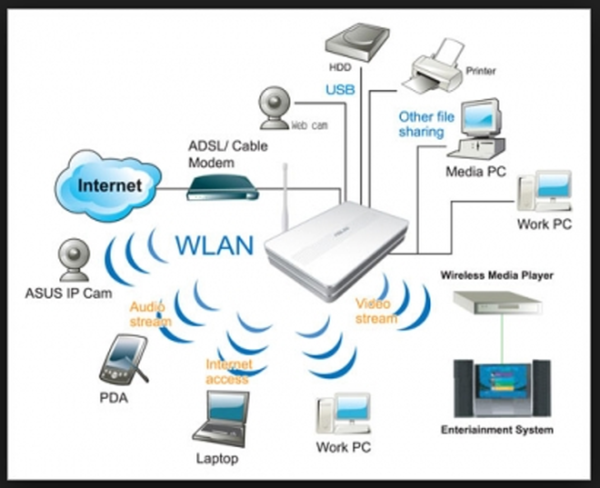
An Internet router is something that many people simply take for granted – it’s just a little box that sits by your phone point, or in a cupboard and makes your Internet work.
In fact, most of the times your Internet Company will even provide your router to you as part of the service contract and will even have the router pre-configured so that it is ready to go when it arrives – simply requiring that you unpack it and plug it in.
This is great because it means that getting connected to the Internet is very simple, however it does meant that the majority of consumers don’t really understand routers at all and if the need to purchase and install one every arises then it causes serious problems.
The aim of this article is to demystify the Internet router – explain its job, the differences there are between different types of routers and how to choose the most appropriate one.
What is a router anyway?
A router is like a connection between two networks – the computer or computers within your household make up what is known as a local area network and this needs to be connected to other networks (which are what the Internet is really made up of) via a router.
To the average Internet user, a router is really just a device that allows your computers to connect to the Internet and therefor the most important considerations are normally the type of Internet router that is required, how many devices it can connect to the Internet and the speed at which it can connect and these are the types of considerations we will be addressing in this article.
Why would I need to buy my own router?
As mentioned previously, Internet providers will often supply the router but there are also situations where it is required for a router to be purchased elsewhere. Some of the most common reasons for this would be as follows:
- The router has suffered non-accidental damage and is not covered by the service provider
- The router offers standard speeds and something more powerful is required
- The router quality is not sufficient
- The Internet line is out of contract and the provider is going to charge a fee for replacing the router
Internet Line Types
The first consideration when purchasing a router is the type of line that you have installed – this is important because there are different types of routers for different Internet lines.
ADSL
ADSL Internet typically comes in via a standard phone line or socket and will require an ADSL router.
DSL
DSL Internet typically comes in via a co-axle cable (similar to traditional TV cable links) and will require a DSL router.
Wireless capabilities
Probably the next most common consideration to make when purchasing a router is the wireless capabilities – if any – of the router.
Despite popular belief not all routers come equipped to provide wireless connectivity. Some people don’t have any need for wireless connectivity and in these cases a hard wire only router may be the best potion. Routers without wireless capabilities are typically much cheaper than those with wireless capability so if this option is not required it makes sense to do without it.
For those of us that do require the availability of a wireless connection the choices increase massively. As soon as you look at wireless enabled routers you will see that there are many different options and large range in prices.
The standard for wireless communications concerning Internet connectivity is known as IEEE 802.11 and is then further classified into several different types based on various factors.
IEEE 802.11a
The first classification was introduced in 1999 and whilst the speed was fast for its time at around 54 Mbit/s the range was very short.
IEEE 802.11b
This classification has a much greater range but slower speeds at around only 11Mbit/s.
IEEE 802.11g
When this classification was introduced it had the best of both worlds with a 54Mbit/s speed rating as well as a range similar to 802.11b.
IEEE 802.11n
The n classification is currently the fastest available to the retail market with speeds of up to 74Mbit/s and a range of around 230 feet.
When choosing the type of wireless capabilities that you want there are several considerations. Firstly each increase in speed and range will have an associated price increase and secondly you should confirm that the devices you are planning to use with the wireless router are compatible with the classification that the router adheres to. For example, some older devices will not work with the newest wireless classifications.
Brand
Of course the next key thing to consider when purchasing a router is the brand that you chose. There are many different brands of routers available on the market and depending on the scenario that the router is being deployed into the best one will differ.
If you are purchasing a router for an office environment then Draytek and Billion are both very good makes. These manufacturers are known for producing very robust and feature rich routers but do come at a much higher price than other makes.
For the average home user Netgear and TP-Link are both reliable makes that are priced mid-way in the market.
There are also other brands that sit at the lower end of the market and will provide similar hardware at a much cheaper price.
Features
The last thing to look for when purchasing an Internet router is the additional features and capabilities of the router. This will not be a necessary consideration for most users but depending on the use case it can sometimes be important.
Some of the features that will not always come as standard with a router include gigabit connectivity which is the fastest hard wired connection speed that is available on the retail market and will be very useful for users planning to play online games – where fast speeds and low latency are key.
Some routers also have other advanced features such as feature rich firewalls for maximizing security and also the ability to take advantages of online services such as dynamic DNS. Check here for some of the best prices and features.





